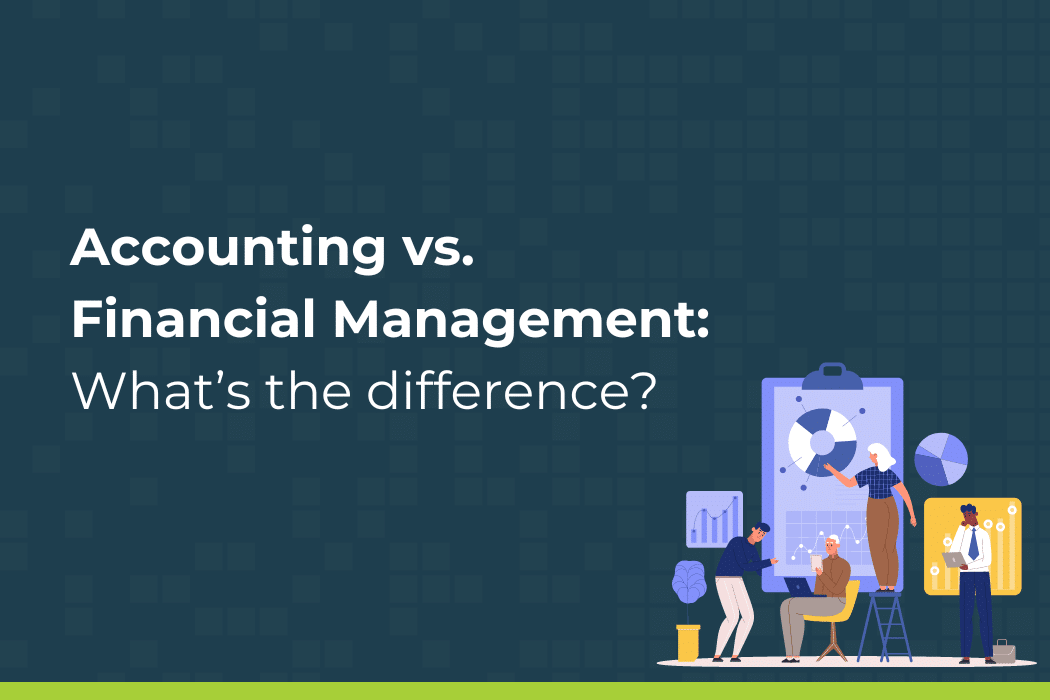In today’s competitive business world, understanding your company’s financial status is crucial. Accurate updates on accrual, expenditures, income, and bank balances provide insights into the health of the business.
Visionary business leaders utilize these historical snapshots to gain valuable insights into the future, recognizing money as the catalyst for growth and success.
The distinction between accounting and financial management becomes apparent here. While they may overlap, they have distinct roles. Accounting tracks financial position, while financial management strategically manages assets and determines optimal utilization.
Understanding the differences between accounting and financial management is essential for a CPA’s career.
What is accounting?
Accounting plays a crucial role in providing a comprehensive view of an organization’s financial health. Through meticulous measurement, processing, classification, and recording of financial transactions, accounting professionals adhere to internationally recognized standards such as Generally Accepted Accounting Principles (GAAP) and International Financial Reporting Standards. Additionally, they follow reporting procedures established by regulatory bodies and standards-setting organizations.
The gathered information is skillfully packaged and presented to various recipients including management, creditors, shareholders, investors, and oversight or tax officials. From here, accounting is further divided into distinct fields based on the intended audience. Financial accounting focuses on providing comprehensive financial information to external users such as creditors, government agencies, and analysts, while management accounting caters to internal users like management and employees.
- Financial accounting: Reporting financial information to external users like creditors, suppliers, government agencies, and analysts.
- Management accounting: Reporting financial information to internal users like management and employees.
What is financial management?
When it comes to accounting vs. financial management, the financial management role calls on accountants to have money management skills. Financial management oversees financial structures to improve the entity’s financial health and help management craft strategic plans and make sound decisions.
Key elements include:
- Budgeting, planning and forecasting: Financial management peers ahead. Financial management requires creating a budget and plan and forecasting outcomes as aligned with company objectives. Through proper financial planning, companies have the funds to meet their short- and long-term needs.
- Financial control: Efficient utilization of the firm’s assets is crucial. Financial control ensures that the company’s funding comes from proper sources and is utilized properly.
- Financial decisions: This is the place for weighing how resources are used and acquired. There are investments, financing options, and disbursement of dividends to consider. The firm generates a strong return on investment (ROI) through sound financial planning and properly distributes its wealth among shareholders.
Responsibilities: Accounting vs. financial management
Accounting and financial management have similarities in reporting financial information accurately and managing teams. However, they differ in their day-to-day responsibilities. Accounting managers oversee functions, collaborate with other departments, and develop strategies for financial stability. Financial managers are responsible for the company’s financial health, advising on performance, overseeing investments, and analyzing risks.
Key differences: Accounting vs. financial management
As accounting professionals plot their career path, it helps to know the differences between accounting and financial management.
Responsibilities and objectives: Accounting managers record, maintain, and report the company’s financial affairs, while financial managers manage finances and investments to support company growth and strategic plans.
Education: Accounting management requires at least a bachelor’s degree, while most financial management jobs require a master’s degree.
Salary: Accounting managers earn an average base salary of $52,744 a year, while finance managers earn considerably more – an average of $89,473 a year.
Seniority: Financial management has seniority over accounting and is a recognized contributor to the senior management team.
Time frame: Accounting focuses on past transactions, while financial management monitors real-time matters for future plans.
Conclusion
Accounting and financial management both represent critical capabilities in every company. But the differences between accounting and financial management mean that each is suited to professionals with differing skill sets and career goals. In short, accounting is about reporting financial transactions, while financial management strives to impose money management that enables and propels future growth.
Financial management can offer a career pathway to upper management and the C-suite, but not every accountant receives formal training in financial management.
If you want to learn more, consider the MasterCPE downloadable course, Accountant’s Guide to Financial Management. The 15-credit course overviews the fundamentals of financial management, including the Sarbanes-Oxley Act, financial statement analysis, financial forecasting, risk and return, valuation of stocks and bonds, investing, and other areas crucial to the financial aspects of strategic planning. You’ll gain an in-depth look at the skills needed to pursue a fulfilling, prestigious career in financial management.

